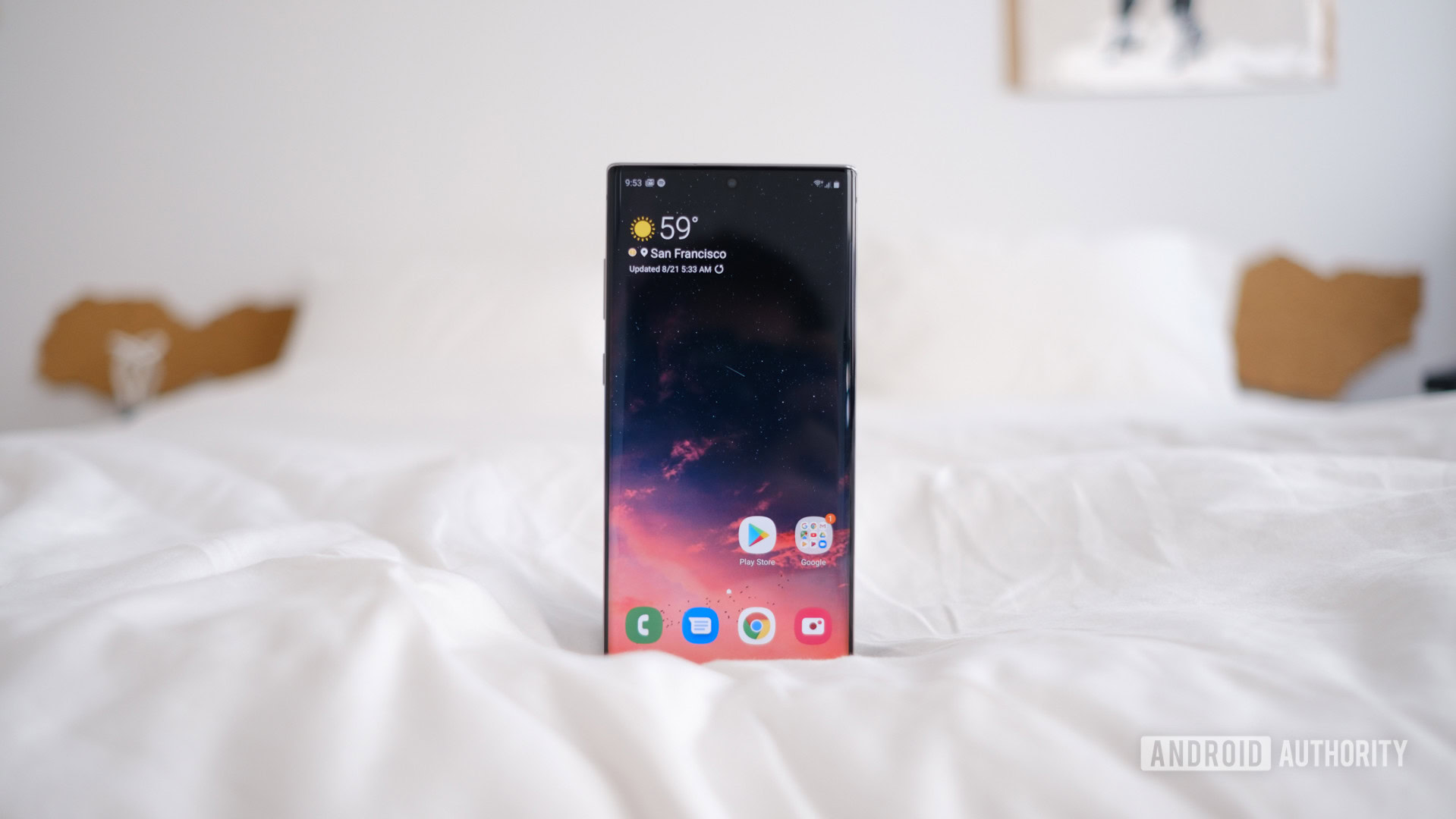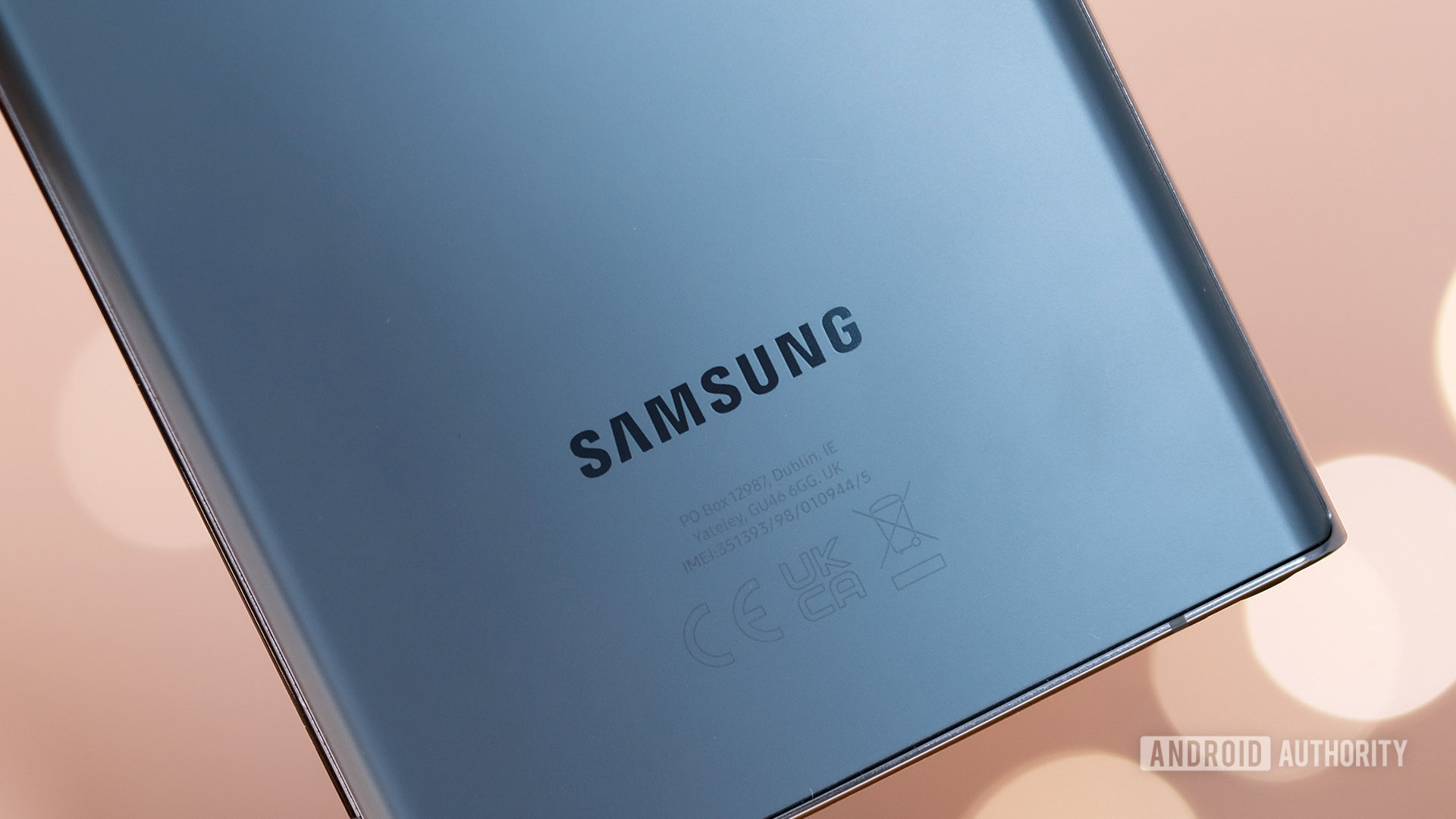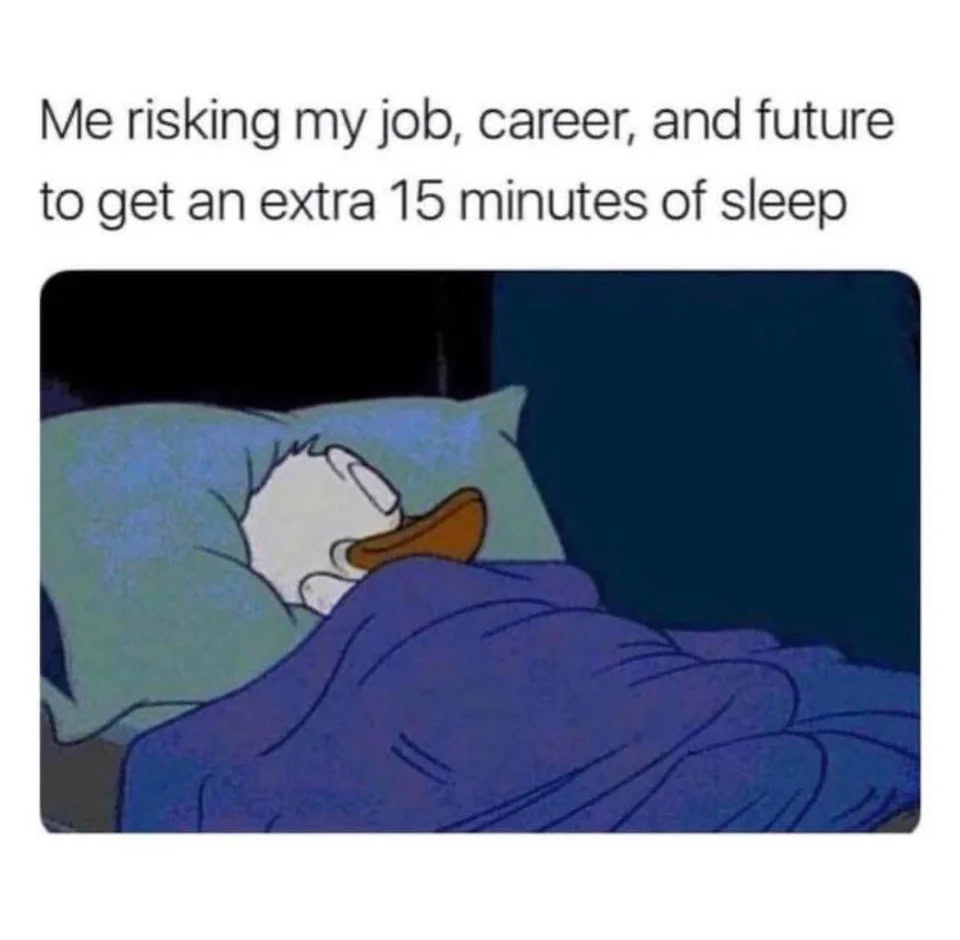Affiliate links on Android Authority may earn us a commission. Learn more.
🛏️ Good day, and welcome back to the Daily Authority. I’ve finally recovered from the cold I mentioned last Monday, just in time for Google Pixel launch week. While there will be plenty of time to get familiar with the Pixel 7, Pixel Watch, and whatever else Google might launch, I first want to focus on another important story today.
Stop scrolling, get snoozing

If you’re one of those people who sleepily use their phones in bed, then tuck them snugly under your pillow or place them on your nightstand when you’re done, today’s feature is for you. Our Adam Birney took a deep dive into how sleeping with your phone anywhere nearby could be one of the worst things you can do for your health.
Sleep or scroll
- According to a recent poll conducted on AA, more than half of our readers sleep with their phones in bed at least some of the time.
- Even some of those who claim they don’t say they usually place their phones on the bedside or a nightstand nearby.
- There’s plenty of research to suggest that it shouldn’t be near your bed while you sleep at all.
- “For example, a systemic review of 20 studies demonstrated strong, consistent evidence of an association between bedtime access to or use of electronic devices and reduced sleep quantity and quality, and increased daytime sleepiness.”
- This means that the mere presence of a phone in your bedroom could result in shallower, shorter sleep.
- So why are phones so bad for your sleep hygiene?
- For starters, blue light emitted by phone screens delays the release of the sleep-wake hormone melatonin.
- On top of this, software and apps are designed to increase mental activity and hold your attention for as long as possible.
Why’s sleep so important anyway?
- Sleep is pretty important to our overall well-being.
- According to research, a lack of sleep can contribute to depression, poor academic performance in students, memory issues, and a cavalcade of additional downsides in teens.
- This is true for adults as well.
- “Specifically, a study found more bedtime mobile phone use was associated with increased fatigue and sleeping in longer for adults in their 40s.”
- In your 60s, bedtime phone use could contribute to an earlier rise time and shorter sleep duration.
- Ultimately, whatever age you are or the condition you’re in, using your phone before bed will probably harm your sleep.
The solution’s pretty simple
- Can these effects be reversed? Can we combat the issues?
- Why, yes! The solution is pretty simple.
- “The good news is that research shows that it only takes one month to reverse the aforementioned negative effects and improve your sleep quality.”
- According to the study, limiting phone use before bed for four weeks reduces sleep latency and lengthens sleep duration.
- Limiting phone use for two hours before bed is a good compromise if you can’t go four weeks without your nighttime scroll.
- Use features like Digital Wellbeing to track your phone usage throughout the day.
- Be sure to manage your notification permissions to ensure your phone pings you less throughout the day and at night.
Roundup
😲 Google is messing up Fitbit, so get an old Fitbit while you still can, writes our C. Scott Brown. Read our Fitbit Sense 2 review for more context (Android Authority).
⌚ Speaking of Fitbit, Fitbit integration will make or break the Pixel Watch is what our Dhruv Bhutani believes. Do you? (Android Authority).
🎮 Not content with upsetting wearable fans, Google shutting down Stadia makes some of us trust the company a lot less (Android Authority).
♻️ In potentially devastating related news, Stadia controllers could become e-waste unless Google issues a Bluetooth update (Ars Technica).
🏝️ Forget Dynamic Island, Android should pinch iOS 16’s Focus features. They’re perfect for those who easily get distracted (Android Authority).
👀 Google’s new Pixel ecosystem should look to Samsung for inspiration. Google could learn something from Samsung’s ecosystem success (Android Authority).
🚘 Intel is filing its self-driving technology firm Mobileye for an IPO. The Israel-based firm could be valued at around $30 billion, making it one of the biggest offerings of the year (Bloomberg, $).
🚜 A new era of mmhhm corn? How John Deere plans to build a world of fully autonomous farming by 2030 (CNBC).
🛹 A look at how Sony unintentionally defined the skate video, thanks to its first consumer-level digital camcorder launched in 1995 (Engadget).
📱 Are you wondering how the iPhone 14’s lack of a physical SIM will affect you? Here’s everything you need to know (Android Authority).
🦾 Bot-fishing: Dating app Hinge reportedly has an army of fake men, parading around with gleaming teeth, perfect hair, and profile pictures with puppy dogs (Wired).
💌 Bonus: What is the worst thing that a person can put on their bio on a dating app? (r/askreddit)
Monday Meme
Now, for a topical meme…
We understand if you’re still yawning after gulping down the weekend’s news. In addition to the advice in our feature, here are a few more ways to improve your sleep quality tonight.
- Modern fitness trackers and smartwatches feature some pretty excellent sleep tracking tools.
- Here’s how to make the most of them.
- Dedicated sleep trackers exist, too, that’ll help chart your sleep journey from night to night.
- Continuous data gathering will help you understand your body’s overnight routines.
- While sleep trackers shouldn’t be relied on as medically-accurate devices, they are best used to review sleep quality and quantity and to keep tabs on bedtime habits.
Sleep tight!
Until next week,
Andy Walker, Editor.


